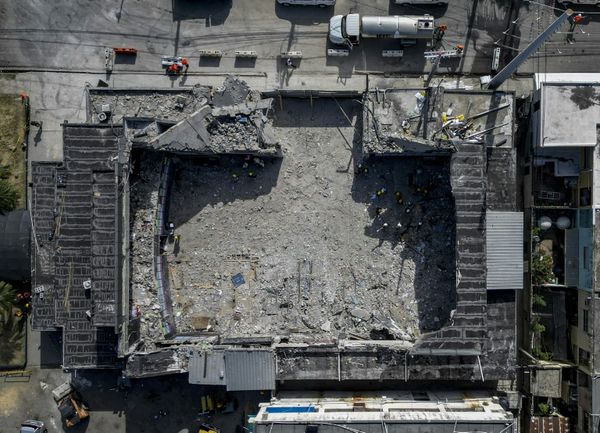The European Commission has hit back at Italy’s populist government after it suggested that EU spending limits could be responsible for the Genoa motorway bridge collapse that killed dozens of people.
A spokesperson for president Jean-Claude Juncker told reporters in Brussels on Thursday that the EU had in fact formally told Italy to improve its infrastructure, given it billions in development funds, and even signed off on a plan to specifically improve the motorways around Genoa.
“We think the time has come to make a few things clear. Over the 2014-2020 period Italy is set to receive around €2.5bn (£2.2bn) under European structural and investment funds for investment in network infrastructures such as roads or rail,” the spokesperson said.
“In April 2018 the commission also approved under EU state aid rules an investment plan for Italian motorways which will enable around €8.5bn of investments to go ahead including in the Genoa region.
“For the record, under the agreed fiscal rules member states are free to set specific policy priorities, for instance the development and maintenance of infrastructure. In fact, the EU has encouraged investment in infrastructure in Italy.
“The 2018 country specific recommendations adopted by the council called on the Italian authorities to better target investments to foster infrastructural development. As president Juncker has stated before, Italy is one of the main beneficiaries of the flexibility within the stability and growth pact. This has allowed Italy to invest and spend much more in recent years.”
Matteo Salvini, the leader of the far-right League party and now the country’s interior minister, had suggested that the EU’s fiscal rules could have hampered investment.
“If external constraints prevent us from spending to have safe roads and schools, then it really calls into question whether it makes sense to follow these rules,” he said. “There can be no tradeoff between fiscal rules and the safety of Italians.”
Austerity and its relationship with the EU is a contentious political issue in Italy. In 2011 economist Mario Monti was made Italy’s prime minister despite never having been an elected politician, leading a government of technocrats trying to reduce the country’s debts.
If external constraints prevent us from spending to have safe roads and schools, then it really calls into question whether it makes sense to follow these rules
Monti’s government, which was backed by Brussels, introduced strict austerity measures and introduced “labour market reforms” that weakened workers’ rights.
At least 39 people died after the 1960s concrete bridge carrying the A10 motorway fell away during a sharp and violent storm near the northwestern port city of Genoa.
Around 1,000 rescue workers have been hunting for survivors and at least 630 people evacuated from their homes in the area.
It emerged on Wednesday that the Five Star Movement, the populist party that leads Italy’s coalition government with the far-right League, had campaigned against improvements to the bridge and described claims it would collapse as a children’s fairytale. Some structural work was carried out on the bridge in 2016.
The Five Star-League coalition government came to power at the start of June this year after intense and dramatic coalition negotiations following inconclusive elections







